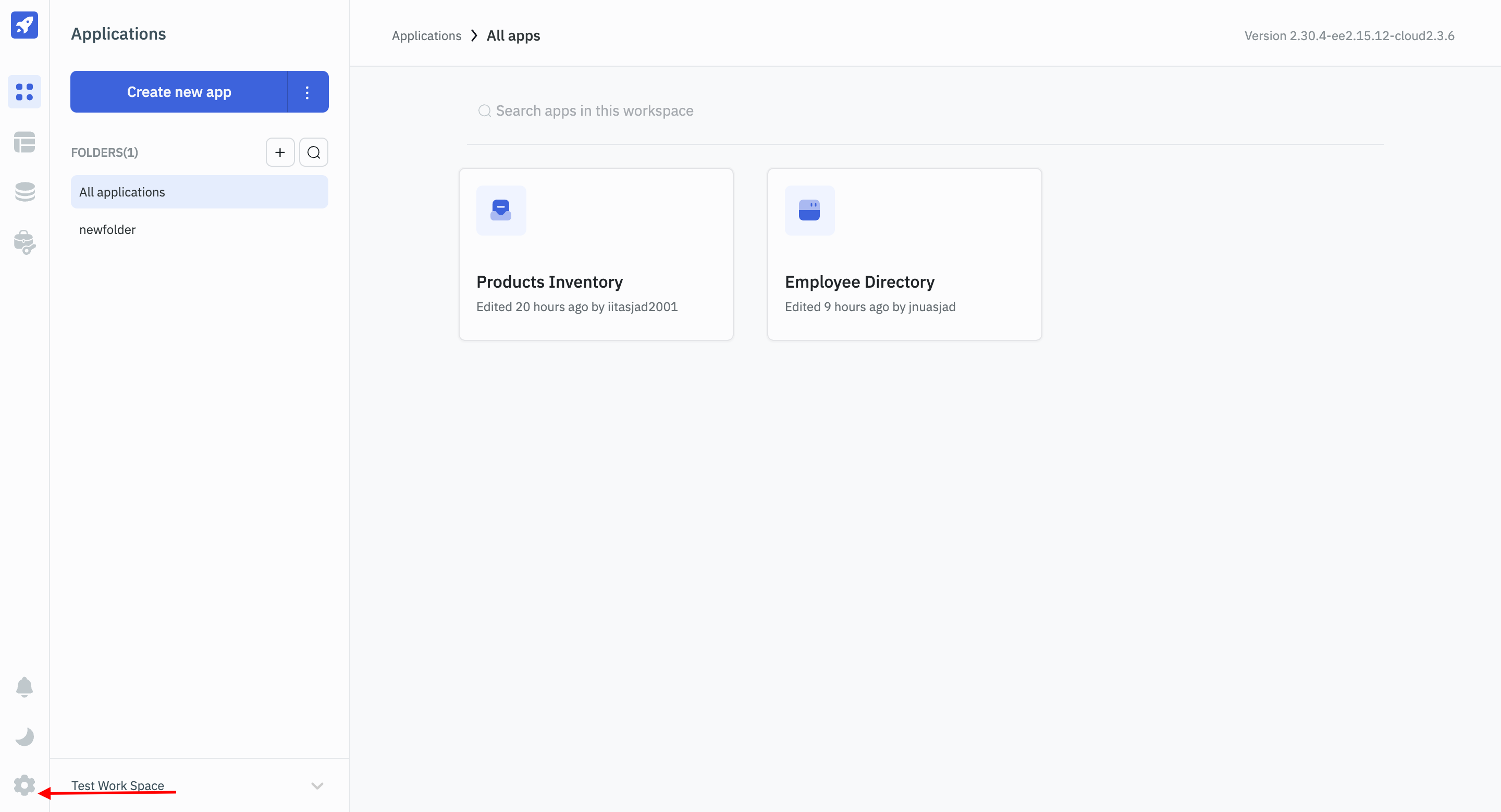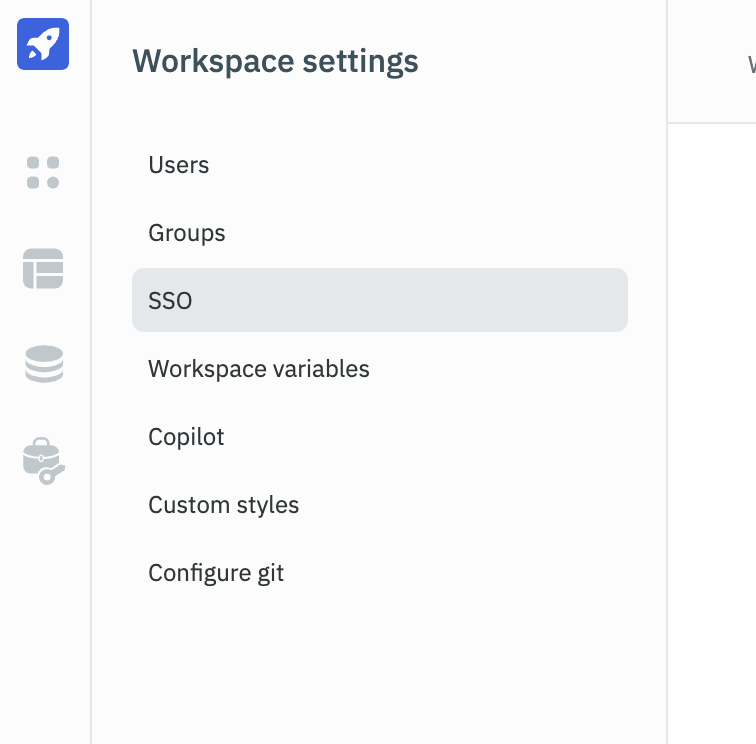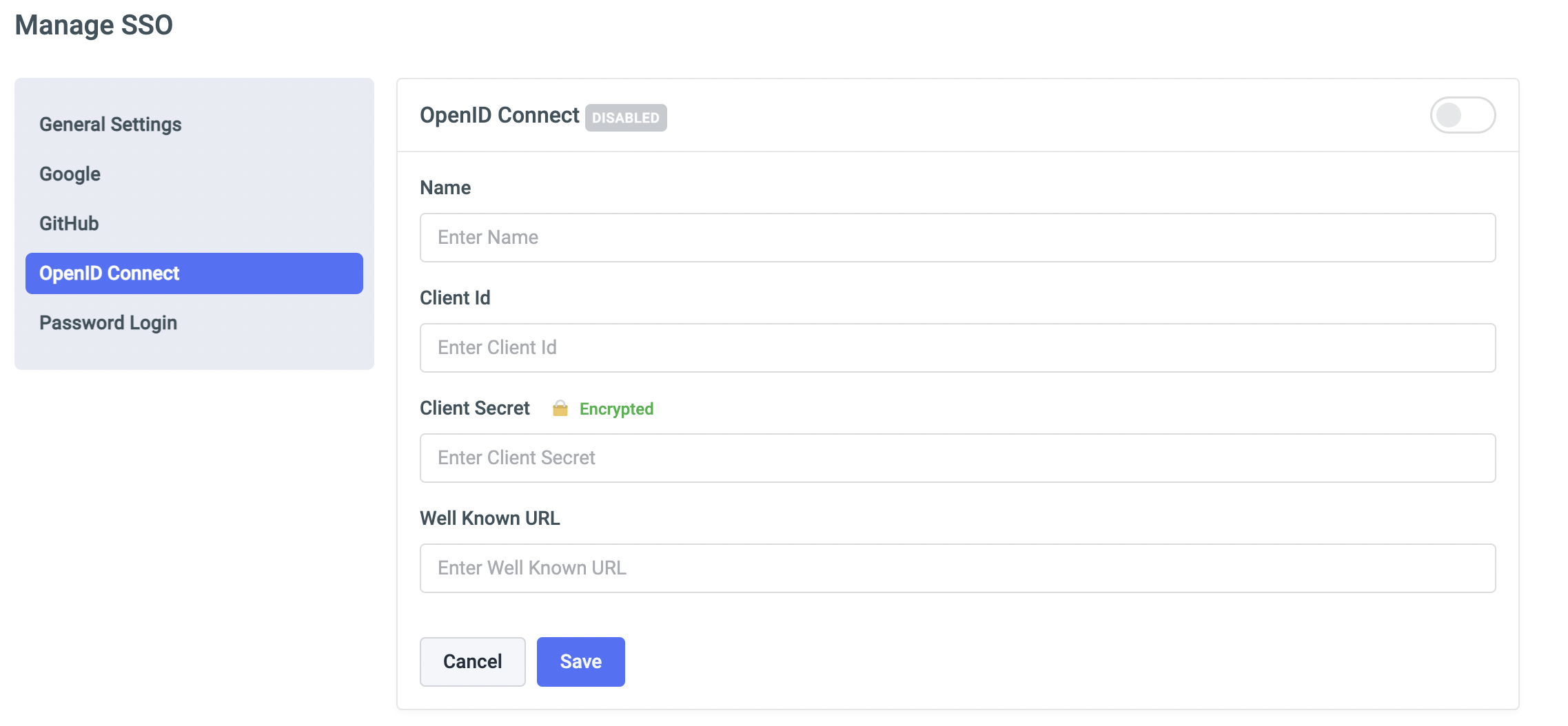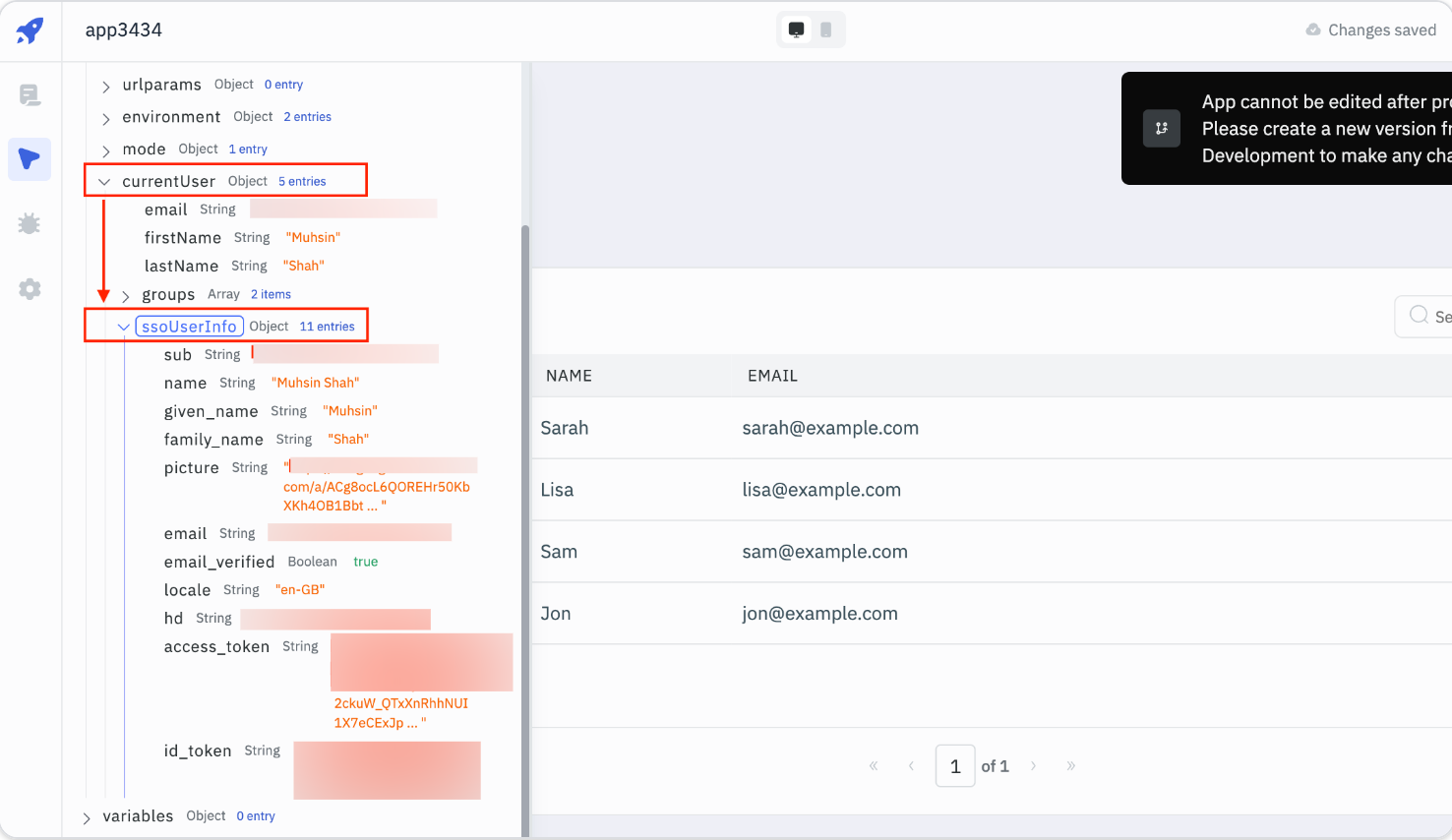Available on: Paid plans
Configure OpenId Connect Single Sign-on
-
Go to the Workspace Settings (⚙️) from the left sidebar in the ToolJet dashboard

-
Select
SSOfrom workspace options
-
Select
OpenId Connect.
-
Find and set Name, Client Id, Client Secret, and Well Known URL from your Open Id provider.
Exposed ssoUserInfo
Once the OpenID is configured (on ToolJet version v2.6.2-ee2.1.0 or above), ToolJet will expose the user info returned by the OpenID provider. The user info will be available under the ssoUserInfo property of the currentUser variable. Check the Inspector doc to learn more.
The exposed user info can be dynamically accessed throughout the apps using JS {{globals.currentUser.ssoUserInfo.<key>}}
The following is an example of the user info returned by Google OpenID provider:
Key | Description | Syntax to access |
|---|---|---|
| sub | Subject - Identifier for the End-User at the Issuer. | {{globals.currentUser.ssoUserInfo.sub}} |
| name | End-User's full name in displayable form including all name parts, possibly including titles and suffixes, ordered according to the End-User's locale and preferences. | {{globals.currentUser.ssoUserInfo.name}} |
| given_name | Given name(s) or first name(s) of the End-User. | {{globals.currentUser.ssoUserInfo.given_name}} |
| family_name | Surname(s) or last name(s) of the End-User. | {{globals.currentUser.ssoUserInfo.family_name}} |
| picture | URL of the End-User's profile picture. This URL MUST refer to an image file (for example, a PNG, JPEG, or GIF image file), rather than to a Web page containing an image. | {{globals.currentUser.ssoUserInfo.picture}} |
| End-User's preferred e-mail address. Its value MUST conform to the RFC 5322 [RFC5322] addr-spec syntax. | {{globals.currentUser.ssoUserInfo.email}} | |
| email_verified | True if the End-User's e-mail address has been verified; otherwise false. | {{globals.currentUser.ssoUserInfo.email_verified}} |
| locale | End-User's locale, represented as a BCP47 [RFC5646] language tag. This is typically an ISO 639-1 Alpha-2 [ISO639‑1] language code in lowercase and an ISO 3166-1 Alpha-2 [ISO3166‑1] country code in uppercase, separated by a dash. For example, en-US or fr-CA. As a compatibility note, some implementations have used an underscore as the separator rather than a dash, for example, en_US; Relying Parties MAY choose to accept this locale syntax as well. | {{globals.currentUser.ssoUserInfo.locale}} |
| hd | End-User's hosted domain, if any. | {{globals.currentUser.ssoUserInfo.hd}} |
| access_token | Access token returned by the OpenID provider. | {{globals.currentUser.ssoUserInfo.access_token}} |
| id_token | ID token returned by the OpenID provider. | {{globals.currentUser.ssoUserInfo.id_token}} |
| id_token_encrpted | It is the JSON value of encrypted id_token | {{globals.currentUser.ssoUserInfo.id_token_encrpted}} |
